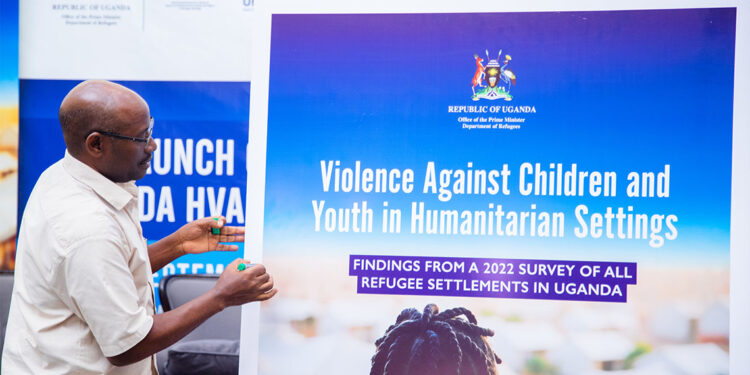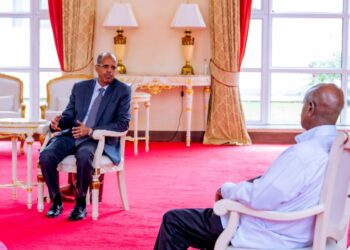The inaugural Humanitarian Violence Against Children Survey (HVACS) conducted in Uganda has revealed alarming levels of violence among children in refugee settlements. The survey, the first of its kind in a humanitarian context, found that nearly 50 percent of individuals aged 18-24 experienced at least one form of violence—emotional, physical, or sexual—before the age of 18.
Key findings indicate that violence often begins after children arrive at refugee settlements, with 73 percent of girls and 53 percent of boys aged 18-24 experiencing their first incident of sexual violence post-arrival. The impact on education is severe, with more than a quarter of adolescent girls and over half of adolescent boys aged 13-17 missing school due to sexual violence.
The survey also highlighted significant mental health challenges, with higher rates of distress, suicidal thoughts, and self-harm among those who experienced violence. Despite high awareness of available support services, only a small fraction of survivors seek or receive help.
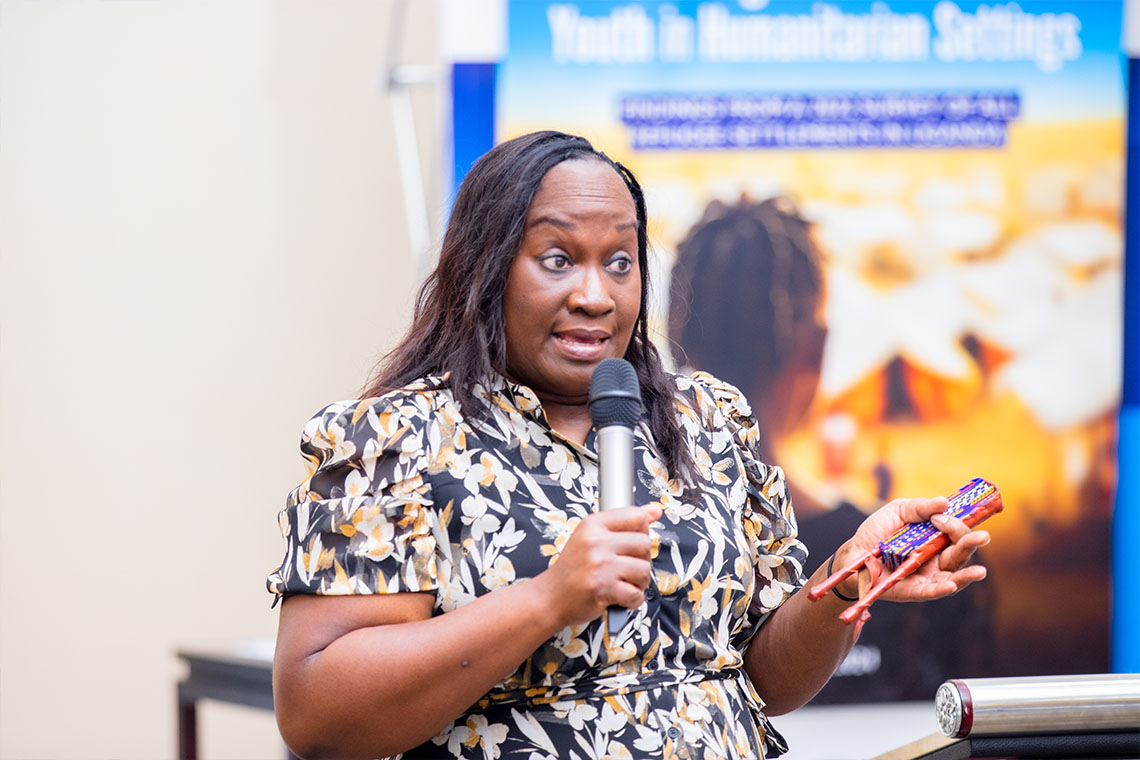
The HVACS, conducted by the Baobab Research Program Consortium in collaboration with Uganda’s Ministry of Gender, Labour, and Social Development and the Office of the Prime Minister, aimed to provide data to guide prevention, healing, and justice efforts for children in refugee contexts. The survey calls for intensified prevention efforts, school-based interventions, and community-wide approaches to break cycles of violence and promote disclosure.
Dr. Chi-Chi Undie, Research Director at Baobab RPC, emphasized the importance of this work, stating, “Our survey lays the foundation for broader regional impacts, and we hope it prompts further initiatives to protect vulnerable children in refugee settings.”
The full findings are available in the report, “Violence Against Children and Youth in Humanitarian Settings,” which underscores the urgent need for targeted prevention and support programs to address this critical issue in Uganda’s refugee settlements.
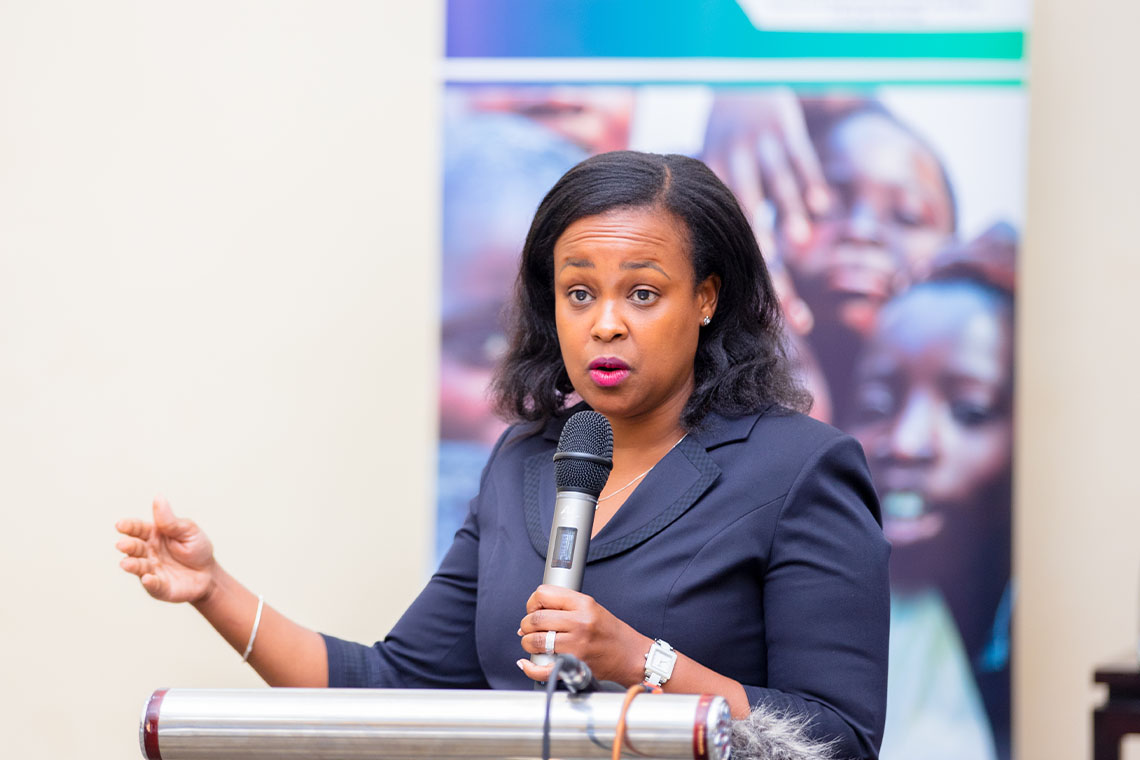
She added; “The HVACS was conducted in Uganda in 2022, marking the first time this survey has been applied exclusively in a humanitarian setting. The survey covered all 13 refugee settlements in Uganda, making the country the first to gather comprehensive data on violence against children within refugee populations. The findings reveal that violence is a significant issue, with over 70% of children experiencing their first instance of physical, sexual, or emotional violence after arriving at the settlements.”
She revealed that the survey also highlights that sexual violence disproportionately affects girls, and physical violence is particularly prevalent among boys. Mental health concerns are widespread among refugee children, especially those who have experienced violence. “Despite knowledge of where to seek help, very few children report their experiences or seek care. This survey provides crucial evidence to guide future programming for children in refugee settings.”
Why it was conducted in Uganda First
While speaking during the launch of the report on Thursday at Mestil Hotel, Dr. Chi-Chi Undie said the survey was conducted first in Uganda since is well known as one of the top refugee-hosting countries in the world. “Uganda has been generous to displaced people. Uganda’s policies are very well known around the world for being among the most progressive, so it’s been a really important country for conducting this. Uganda continues to receive an influx of refugees as a country surrounded by other countries that are constantly in conflict. And so it has always been a really important country, not just for work in humanitarian settings, for public health work in general, for us as the Population Council and as the Baobab Research Program Consortium.”
Dr Stella Muthuri the CEO of Baobab RPC/ Population Council revealed that one of the more important findings was that the incident of violence first happens after arrival in these refugee settlements.
“I think that was a startling finding for us. I think the startling reason is because, you know, these are supposed to be places where people come and find refuge, where they are safe. And so there is something for us to do. The other settling finding is that half of these children have experienced some form of violence. And here we’re talking about physical, we’re talking about emotional and we’re also talking about sexual violence. I think that is another thing, or another area, that I think we need to pay attention to, the high numbers that are experiencing violence. Now, even though we have that high number that I experience in violence, the number of them that are then seeking help or receiving help for the violence that we’ve experienced is quite low, another startling finding.”
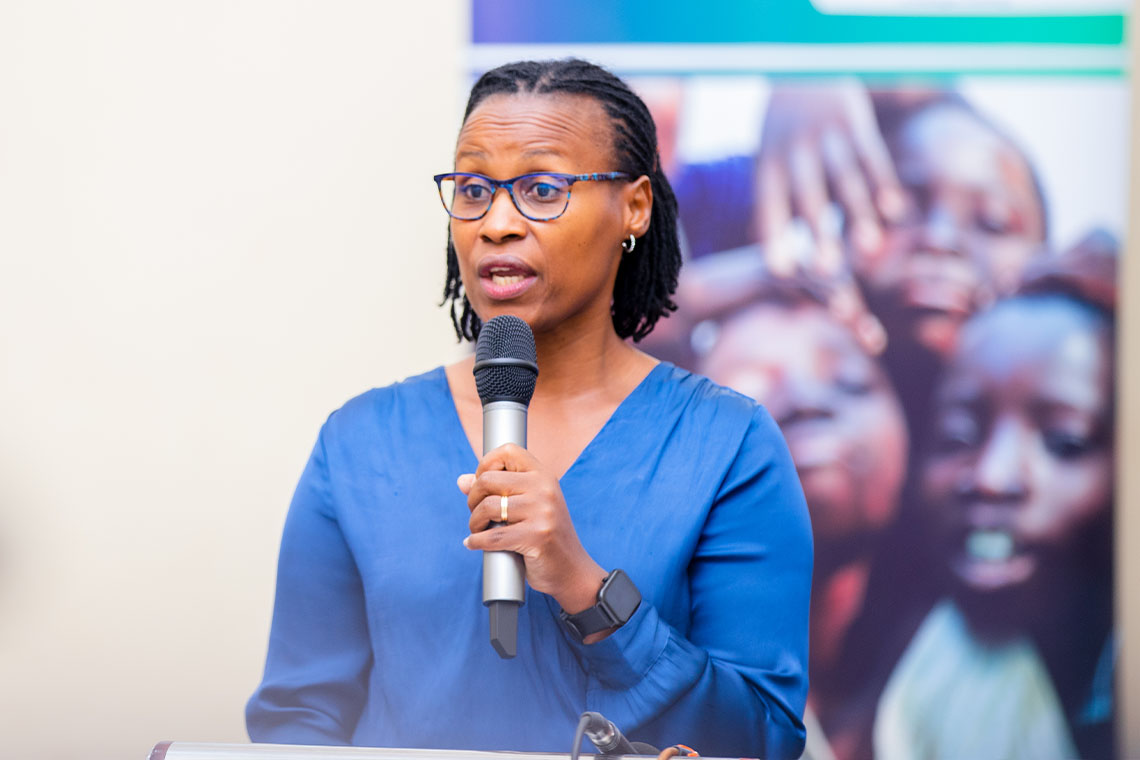
Another startling finding may not be so unexpected, but the people who are perpetrating violence against these children are those known to the children. “You know the people who are known to the children. So the categories and the report detail exactly who the major perpetrators are for the different types of violence. But we’re seeing a lot of for those who are partnered, for the children that have partnered, and yes, you know, we’re talking about young children, but some of them do have partners. We’re seeing, yes, that’s a source of violence. We’re seeing that the home environment is an area where they’re also being violated. We’re talking about their peers being people who violate these children. And so it’s people around them, those closest to them, from a percentage in many cases, we’ve all now, Our leash or authorities within the.
According to Dr Muthuri, some of the recommendations the report suggested include attention to mental health among children. “A lot of the mental health services that we have, they tend to be set up for adults. We need to really ensure that we are tailoring mental health services for refugee children, given the wide prevalence of mental health concerns among this population. In addition, we really need child-friendly interventions that can help promote disclosure of violence, since we know that children tend not to disclose even when they are experiencing violence, we need to be able to detect children early. We need to be able to connect them to services.”
She added that there is also a need to have a focus on prevention so that none of this happens in the first place. “We also need to give attention to boys and the issues of physical violence and emotional violence. For instance, oftentimes sexual violence tends to be a focus, and it must continue to be a focus, especially because of its high prevalence among girls. But we don’t want to ignore other forms of violence as well which are also important and which we don’t know how to address.”
Dr. Gloria Seruwagi one of the researchers from the Baobab Research Program Consortium and the Population Council emphasized the heightened vulnerability of displaced individuals, stating, “Refugee populations are very vulnerable compared to normal populations.”
Highlighting a common tactic used by abusers, she remarked, “Perpetrators rely on the fact that victims will stay silent,” stressing the critical need to empower victims to speak out. Addressing the often-overlooked challenges faced by boys, Dr. Seruwagi pointed out, “We’ve realized that the boy child is missing,” underscoring the importance of inclusive protection programs that cater to all children.
Mr Charles Bafiki the commissioner for Refugees from the Office of the Prime Minister welcomed the research and urged that it will help them develop policies. “The key findings show alarming call leaving deep scars and long-lasting trauma to young people. “I challenge all of us to take these findings seriously. So that we don’t leave back a traumatized generation. As stakeholders, we need to empower children free from violation. Caporal punishment no longer raises children. So this helps to understand the gravity of the violation.”
Why the survey was conducted
According to Dr George Odwe from Baobab RPC/ Population Council who was the Co PI in the research what prompted them to carry out this research was that given that violence against children is a serious public health issue and also a human rights issue. So there’s a high prevalence of sexual violence, physical violence, and emotional violence, and several children undergo these experiences when they are young, and if nothing is done to intervene, then it goes a long way in terms of affecting them as they grow into adulthood.
“It affects their school participation. It affects their overall well-being. But you find that in the humanitarian context, these experiences of violence, especially sexual physical violence, as well as emotional violence, are quite exacerbated because you know, the humanitarian nature, the more vulnerable, but we realize that there is a lack of data to inform policies and also to inform interventions that can go a long way in terms of, I mean intervening to prevent and also to respond to survivors of violence, and so we did this, we are doing this study of violence against the human survey, just to be able to estimate the prevalence, to estimate the incidences, to identify some of the risk factors as well as the protective factors, so that we able to design interventions that respond to the needs of the vulnerable population, vulnerable children, girls, and boys, who need the services.”
He added that this particular survey will stakeholders and funding partners an opportunity to identify areas where they can intervene so that they respond to this manner of violence against children in the humanitarian context.
According to Dr Odwe one of the research participants sexual violence is quite prevalent and from the statistics, therefore is a great need to come in to intervene. “I think it’s very important that we identify the children so that we can know where they are, screen them and link them with services so sexual violence is an area that is concerned that it’s an urgent intervention, but I think we’ve already identified one area where to reach them is that we can screen the cases and train them, train, I mean, encourage them and support them to reach the services. Yeah, so I would say that’s one area that is a great intervention. I think some efforts are already been initiated.”
Do you have a story in your community or an opinion to share with us: Email us at editorial@watchdoguganda.com


